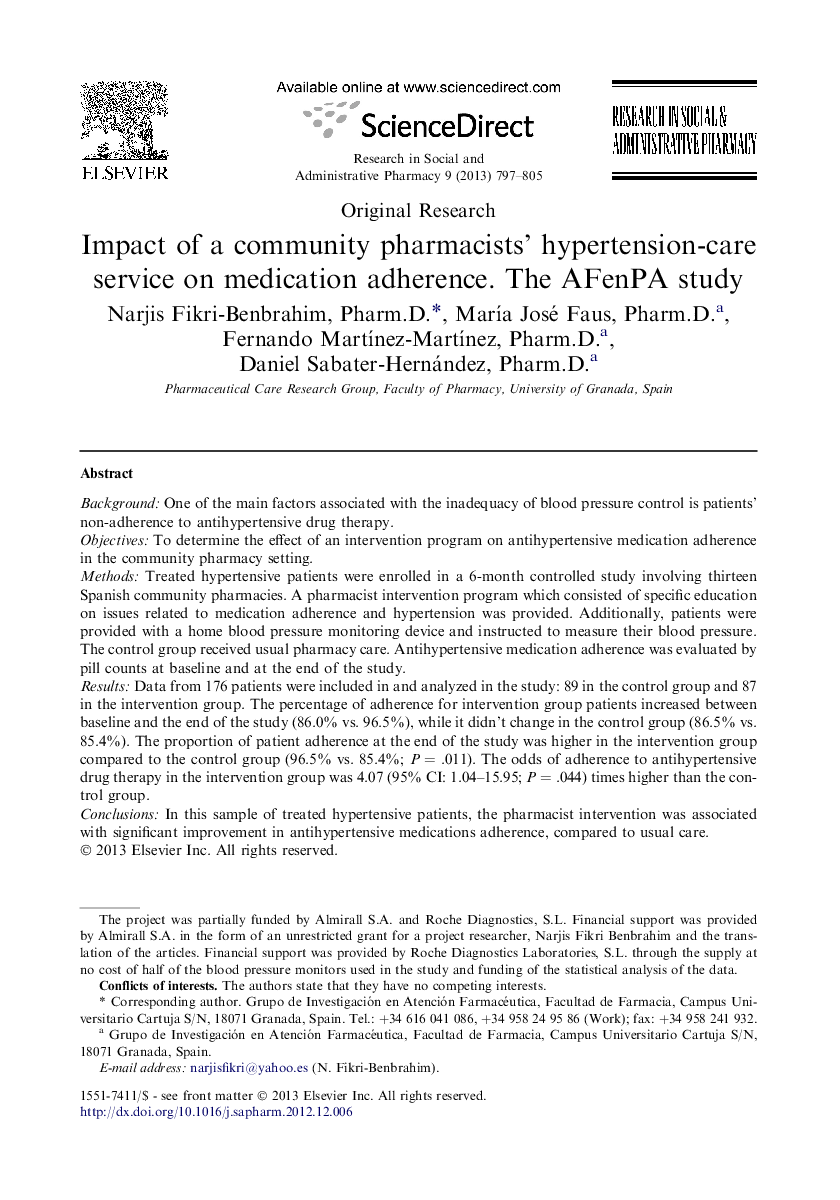| Article ID | Journal | Published Year | Pages | File Type |
|---|---|---|---|---|
| 2508528 | Research in Social and Administrative Pharmacy | 2013 | 9 Pages |
BackgroundOne of the main factors associated with the inadequacy of blood pressure control is patients' non-adherence to antihypertensive drug therapy.ObjectivesTo determine the effect of an intervention program on antihypertensive medication adherence in the community pharmacy setting.MethodsTreated hypertensive patients were enrolled in a 6-month controlled study involving thirteen Spanish community pharmacies. A pharmacist intervention program which consisted of specific education on issues related to medication adherence and hypertension was provided. Additionally, patients were provided with a home blood pressure monitoring device and instructed to measure their blood pressure. The control group received usual pharmacy care. Antihypertensive medication adherence was evaluated by pill counts at baseline and at the end of the study.ResultsData from 176 patients were included in and analyzed in the study: 89 in the control group and 87 in the intervention group. The percentage of adherence for intervention group patients increased between baseline and the end of the study (86.0% vs. 96.5%), while it didn't change in the control group (86.5% vs. 85.4%). The proportion of patient adherence at the end of the study was higher in the intervention group compared to the control group (96.5% vs. 85.4%; P = .011). The odds of adherence to antihypertensive drug therapy in the intervention group was 4.07 (95% CI: 1.04–15.95; P = .044) times higher than the control group.ConclusionsIn this sample of treated hypertensive patients, the pharmacist intervention was associated with significant improvement in antihypertensive medications adherence, compared to usual care.
